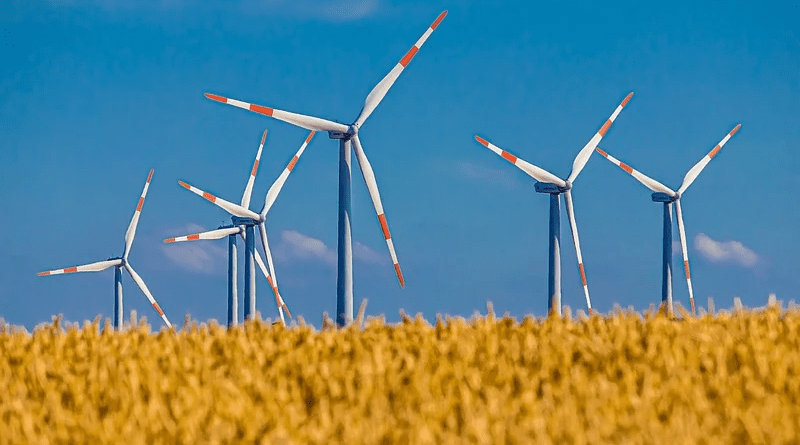EU Countries Call For Speeding Up Green Transition To Break From Russian Fossil Fuels
By EurActiv
By Kira Taylor
(EurActiv) — Europe must speed up the rollout of renewable energy and energy efficiency measures in response to Russia’s invasion of Ukraine, according to eleven EU countries.
The invasion of Ukraine put a spotlight on Europe’s dependency on Russian fossil fuel, particularly gas, and has led to calls for the EU to quickly decrease its reliance on its hostile neighbour.
“We need a swift transition to renewable energy, as an affordable and secure energy source that will contribute to shield[ing] consumers from price hikes as a consequence of import dependency,” according to a joint statement signed by Austria, Germany, Denmark, Spain, Finland, Ireland, Luxembourg, Latvia, the Netherlands, Sweden and Slovenia.
There are also concerns about how much money Europe sends Russia in return for energy supplies. Since the war broke out, the EU has sent €35 billion to Russia for its energy compared to €1 billion for Ukraine’s defence, Europe’s foreign policy chief Josep Borrell said this week.
To reduce Europe’s dependency on Russian fossil fuels and meet the EU’s climate goals, the 11 countries call on their fellow leaders to “be bold” and “move ahead with determination with the green transition”.
“The EU has shown historic unity and taken decisive action in response to Russia’s aggressive behaviour,” reads the joint statement.
“We must maintain the same unity and determination in order to become independent of Russian fossil fuels as soon as possible through accelerating the green transition towards climate neutrality in the EU by 2050 at the latest,” it continues.
They call on EU leaders to unite in their negotiations on the Fit for 55 package, tabled in July to reform Europe’s climate policy and ensure “an ambitious and swift implementation of it”.
This includes creating an “open and interconnected market-driven EU internal energy market” to minimise price shocks in the EU from supply disruptions and a strong emissions trading scheme.
“This is key to making the EU fit for energy independence of Russian fossil fuels and the only way we can address the climate crisis, respond to aggressive Russian behaviour, and ensure a clean, reliable and cheap independent EU energy supply for the future,” according to the joint statement.
The 11 countries add that Europe should avoid locking itself into fossil fuels and remain on track for net-zero emissions in 2050.
This has been a concern as Europe looks for short term alternatives to Russian gas, like liquified natural gas (LNG) from the US. There has been a call to build up Europe’s LNG infrastructure, drawing criticism from environmental groups.

